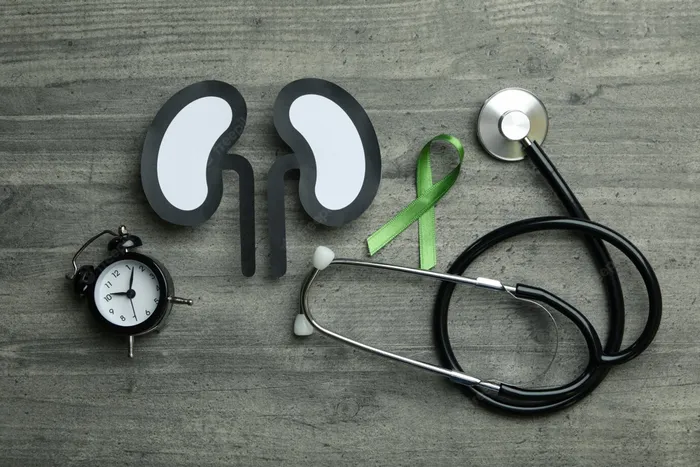Kidney Awareness Week: The life-saving role of vascular access in haemodialysis

As South Africa observes National Kidney week this week from September 4 - under the global theme "Kidney Health for All” - renal dialysis is once again under the spotlight
As South Africa observes National Kidney Awareness week this week from September 4 - under the global theme "Kidney Health for All” - renal dialysis is once again under the spotlight.
Kidney disease is a condition that affects millions of people around the world. In South Africa, an estimated 5 million people have kidney disease, and around 10,000 people die from the disease each year.
Most common causes of kidney disease in South Africa are diabetes, hypertension, and HIV. Other risk factors include obesity, smoking, and family history.
There are no symptoms in the early stages of kidney disease, so it is important to get regular checkups.
If kidney disease is caught early, it can often be managed with medication or lifestyle changes.
However, if kidney disease progresses to kidney failure, dialysis or a kidney transplant may be necessary.
Renowned vascular surgeon Dr Vinesh Padayachy who practices from the Lenmed EThekwini Hospital and Heart Centre sheds light on the intricacies of kidney disease and the life-saving role of vascular access in haemodialysis.
"Vascular access is essentially the patient's lifeline when they are on haemodialysis," Dr Padayachy explains.
"It's the means by which blood is moved out of the body, cleaned by the dialysis machine, and then returned. Without a reliable vascular access, effective haemodialysis is not possible."
For those unfamiliar, there are three primary methods for establishing this access: the Arteriovenous (AV) fistula, AV graft, and catheter.
"The AV fistula is the gold standard," Dr. Padayachy said. "Created by directly connecting a patient's artery and vein, over time, this connection matures and becomes robust enough for regular dialysis."
On the other hand, the AV graft uses a synthetic tube to connect an artery to a vein. Catheters are used as a bridge to create an AV fistula and are typically inserted into a large vein in the neck, chest or thigh.
Each method comes with its benefits and risks.
"Ateriovenous Fistulas, have the lowest risk of infection and can last many years if cared for properly," he noted. Grafts, while carrying a higher risk of clotting and infection, are easier to use for immediate dialysis. Catheters, though efficient for immediate use, have the highest risk of infection.
The longevity of these methods varies.
Fistulas can last for several years, grafts up to 2 years, and catheters for several weeks to months,"
Regular monitoring by a vascular surgeon, including physical exams and ultrasound evaluations, is paramount.
When asked about the decision-making process, Dr Padayachy emphasized the patient's overall health, the quality of their blood vessels, and the urgency of their need for dialysis.
"Ideally, planning begins well before dialysis is needed, allowing time for a fistula to mature."
The field of vascular access has seen remarkable advancements.
"There have been exciting developments in bioengineered blood vessels and less invasive procedures," he highlighted. These innovations aim to reduce complications and enhance the patient experience.
For patients about to undergo these procedures, Dr. Padayachy reassured that preparation involves a thorough vascular assessment, and most can return to normal activities within a week post-procedure.
Highlighting the importance of early detection, he listed early signs of kidney disease: swelling of the legs, reduced urine output, fatigue, and nausea.
"Regular check-ups, monitoring blood pressure, and blood tests can help in early detection," he advised.
For those on haemodialysis, Dr Padayachy emphasized the importance of dietary and fluid restrictions, regular exercise, avoiding smoking, and managing stress to improve the quality of life.
Dr Padayachy message is: "Kidney health is integral to our overall well-being. As we mark Renal Week, let's pledge to be more kidney-aware and prioritize our renal health."
Here are some additional statistics about kidney disease in South Africa and the world:
– Worldwide, an estimated 850 million people have kidney disease.
– Kidney disease is the ninth leading cause of death in the world.
– In South Africa, kidney disease is the leading cause of death among people aged 20-44.
– The cost of treating kidney disease in South Africa is estimated to be R13 billion per year.
IOL NEWS
Related Topics: